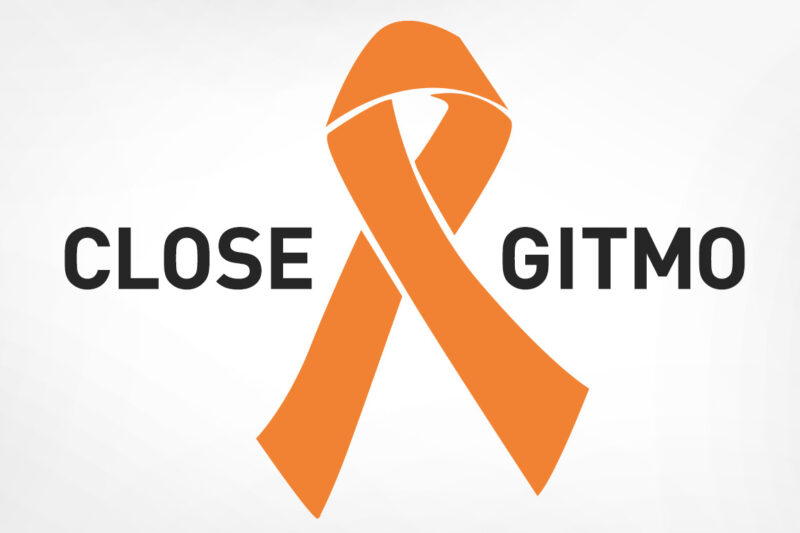
There is a serious human rights crisis brewing at the prison at Guantánamo Bay. A hunger strike that began in early February has spread to include the vast majority of the prison population, according to attorneys representing some of the strikers. One prisoner told his lawyer that some 130 of the 166 prisoners are refusing food.
Military prison officials have thus far acknowledged only that 42 detainees are on strike. At least 11 are being force-fed, in a practice universally considered cruel, inhuman, and degrading, and one that violates international medical ethics standards.
Whatever the numbers, by all accounts, the situation at Guantánamo is dire. The mass hunger strike was launched after prison guards reportedly mistreated Qur'ans belonging to the prisoners (an allegation prison officials deny), but the desperation underlying the prisoners' protest is much more deeply rooted. It is rooted in an unjust system that has imprisoned almost all of the 166 detainees for more than a decade without charge or trial, and with no end in sight. That includes 86 men who remain in prison despite having been unanimously cleared for release by military and intelligence agencies in 2009.
Guantánamo was not a problem that President Obama chose, but it's a problem he now owns and must solve. When the President took office, he promised to close Guantánamo within a year. As he moves further away from that promise, the futures of the detainees appear more hopeless to them. General John F. Kelly, head of the U.S. Southern Command, told the House Armed Services Committee last month about the Guantanamo prisoners, "They had great optimism that Guantánamo would be closed. They were devastated, apparently, when the president backed off."
An official from the International Committee of the Red Cross, whose delegates recently visited the prison and spoke to some of the hunger strikers, told the Russia Today news site:
What I can tell you is that from our observations those tensions and this anguish that the detainees are experiencing are clearly related to the lack of a clear legal framework in Guantanamo. This has now been having a real impact for detainees for some time – on their mental health, on their emotional health.
And who can blame them? Sixty-five prisoners were released in the first two years of President Obama's first term, but that number plunged to just five during 2011 and 2012 combined, largely because of irresponsible restrictions imposed by Congress in an attempt to prevent Guantanamo from closing. But the Obama administration is also at fault. It has shown no signs of progress towards transferring the 86 detainees cleared for release, which it can still do despite Congressional restrictions. Instead, it recently closed the State Department office designated to work on prisoner transfers. Six prisoners face military commission trials; the Obama administration has slated over 40 of the rest for indefinite detention. It is no wonder that for at least some of the men at Guantanamo, death may appear the only way out. It need not be that way.
Today, the ACLU and a coalition of organizations are calling on President Obama to take two immediate steps to avert the human rights crisis:
- First, the president should authorize the secretary of defense to use existing certification procedures to repatriate and resettle abroad all prisoners who have been cleared for release.
- Second, the president must appoint a point person in the administration who is responsible for leading the effort to close Guantánamo.
Other steps will be necessary, but these can be taken now, and will signal to the prisoners and the world that the president is committed to keeping his word. Meanwhile, the world is watching. In a strongly-worded statement, Navi Pillay, the United Nation's top human rights official, stated last week that "this systemic abuse of individuals' human rights continues year after year. We must be clear about this: the United States is in clear breach not just of its own commitments but also of international laws and standards that it is obliged to uphold."
Time is of the essence. After almost two months on hunger strike, some of the Guantanamo prisoners may be facing irreversible physical damage or even imminent death. A few weeks ago, Adel Al Hakimi, a Tunisian man who has been cleared for release but remains a prisoner, reportedly tried to take his own life. Last September, Adnan Latif, an inmate from Yemen, died in circumstances that suggested suicide, but which remain murky. We do know that before his death, Latif had staged repeated hunger strikes and had tried to take his own life on several occasions due to the hopelessness of his situation. These acts, as well as other reported suicides, serve as a cautionary tale. The White House must take action before the Guantanamo prisoners' mass desperation results in any more senseless tragedies.
Learn more about closing Guantánamo Bay and other civil liberty issues: Sign up for breaking news alerts, follow us on Twitter, and like us on Facebook.


